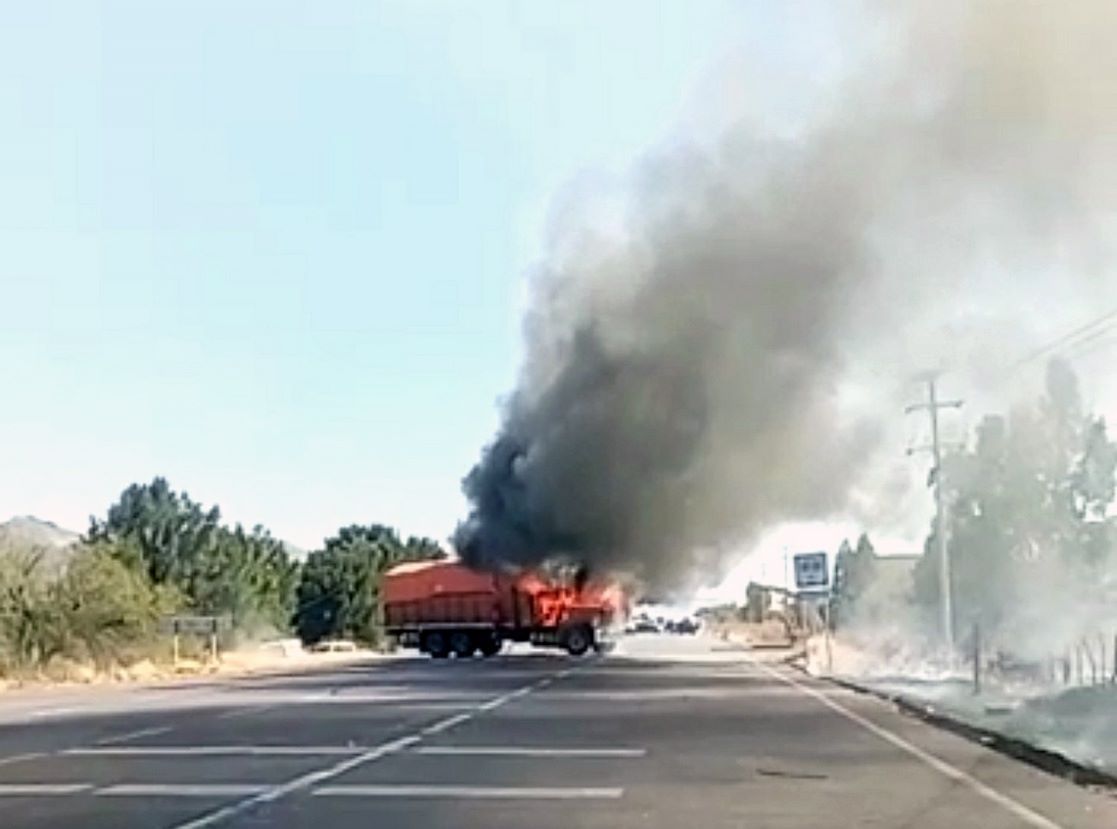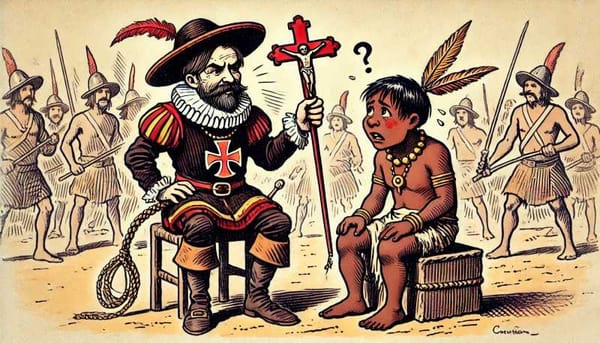Zacatecas experiences a surge of violence with narco-blockades and clashes
Several municipalities in the Mexican state of Zacatecas were affected by narco-blockades and armed clashes as alleged members of organized crime used stolen vehicles to set up blockades and burn cars.

On Sunday afternoon, Zacatecas was hit with a wave of violence, including armed clashes and narco-blockades. At least nine cities and towns in the state, including Fresnillo, Calera, Enrique Estrada, Genaro Codina, Guadalupe, Ojocaliente, Ciudad Cuauhtémoc, Pánfilo Natera, and Trancoso, are on the list of places where tire-tipping devices were found and burned in what are thought to be acts of organized crime.
In response, the State Police, Metropolitan Police, Investigation Police, National Guard, and Mexican Army got together, and at least two helicopters helped them patrol different highways to try to find and catch the criminals.
The first incident occurred around 1:30 p.m. on Sunday in Fresnillo, on the highway that leads to the community of Plateros, near the military base of the 97th Infantry Battalion of the Mexican Army. Members of organized crime shot into the air and set fire to three cars, forcing people passing by to stop. In another place, southeast of Fresnillo on Interstate Highway 60 and northwest on Federal Highway 44, the criminals did something similar by taking over a bus to stop traffic.

The violence then spread to communities south of Fresnillo. Cars were set on fire on the highway from Enrique Estrada to the community of Peasco, and the driver of a double trailer was shot and killed near the CAPUFE toll booth south of Guadalupe.
Other incidents included a blockade on federal highway 45 in the municipality of Guadalupe and a blockade with burned vehicles on the highway that connects Pánfilo Natera with the community of La Blanca in Loreto. Armed civilians also tried to catch police officers in a patrol car from Genaro Codina's department of public safety.
Meanwhile, in an unrelated incident, two men were shot in the Tierra y Libertad neighborhood in the city of Guadalupe. At the same time, dozens of relatives of missing persons and homicide victims held a peaceful protest in the municipal seat of Jerez, demanding that the authorities resolve the problems of insecurity and violence in the area. As of press time, neither the Secretary of Public Security of Zacatecas nor the Office of the State Attorney General had said that any police officers had died or been hurt because of the attack.
Durante la jornada de violencia en Zacatecas, los narcobloqueos dejaron aislada a Fresnillo y afectaron al menos a otras seis ciudades del estado. #EstrictamentePersonal con @rivapa | Sigue la señal en vivo por https://t.co/R0rtaHzqZe pic.twitter.com/02d3pFVzpy
— Foro_TV (@Foro_TV) February 20, 2023
Understanding the Violence in Zacatecas State, Mexico
Zacatecas is a state located in north-central Mexico with a population of about 1.5 million people. The state has a rich history dating back to pre-Hispanic times and is known for its colonial architecture, mining industry, and cultural heritage. However, in recent years, the state has experienced an increase in violence and crime.
The violence in Zacatecas is linked to the ongoing drug war in Mexico, which began in 2006 when the government launched a crackdown on drug trafficking organizations. As the government has gone after the powerful drug cartels, the cartels have gotten more violent, attacking police, civilians, and even other criminal groups.
Zacatecas is an important transit point for drugs being smuggled into the United States from Mexico, and it has become a battleground for rival drug cartels. The Sinaloa Cartel, the Jalisco New Generation Cartel (CJNG), and other criminal groups are fighting for control of the state's drug trafficking routes and illegal activities, such as extortion, kidnapping, and human trafficking.
The violence in Zacatecas has had a significant impact on the state's residents as well as on the local economy. Many businesses have been forced to close due to extortion and violence, and tourism has suffered. The violence has also led to an increase in the number of people who have been displaced from their homes.
The Mexican government has attempted to address the violence in Zacatecas by deploying additional security forces to the state and implementing other security measures. But these efforts haven't worked perfectly, and violence is still a big problem in the state.




